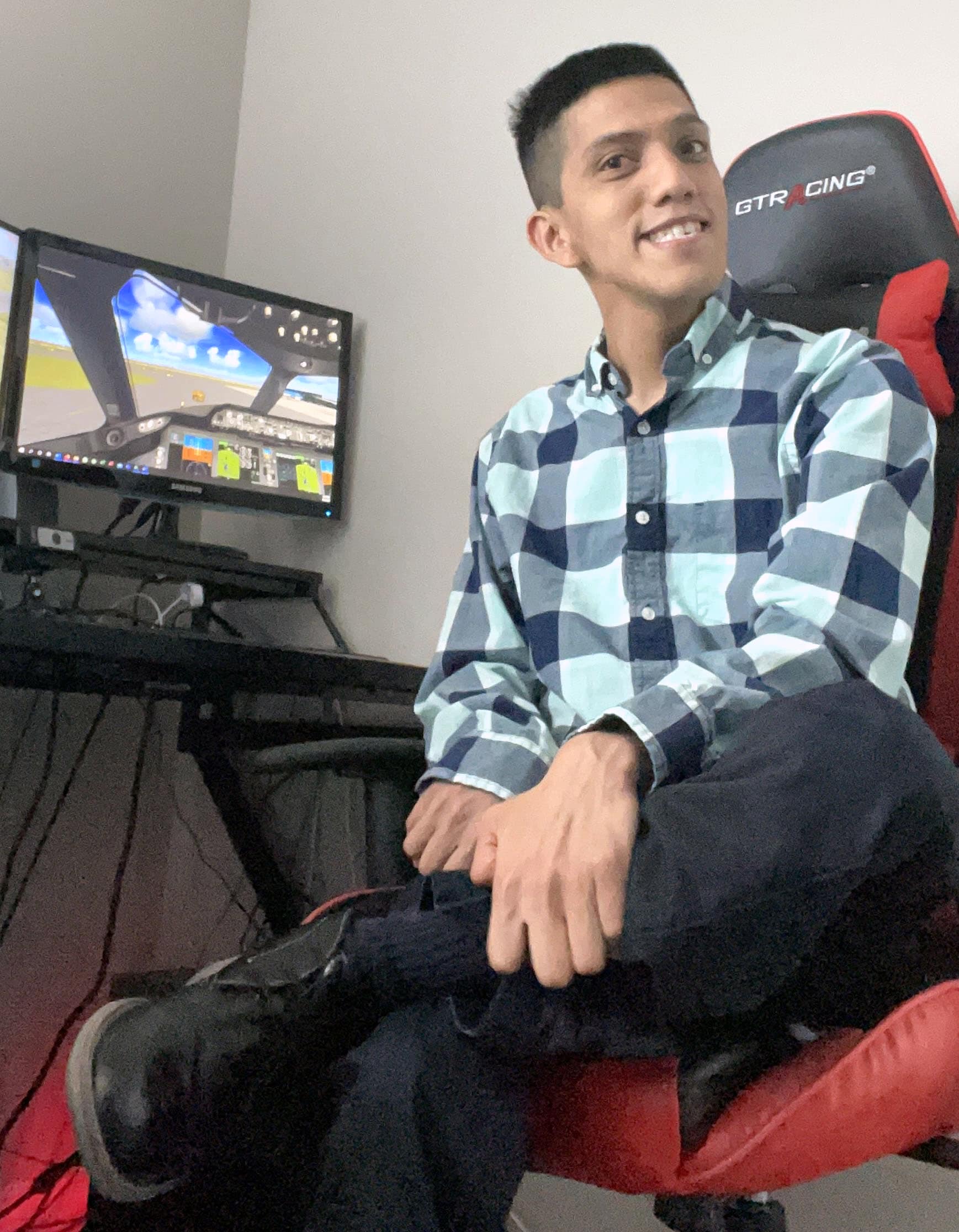5 Questions with Carlos D. Aguilar Velin, an Eagle with CP

Carlos D. Aguilar Velin
B.S. in Aviation Business Administration (’17)
MBA in Finance (’19)
M.S. in Aeronautics (University of Wisconsin – Parkside)
Carlos D. Aguilar Velin recently launched his career as a bilingual aviation consultant contractor with the International Council on Clean Transportation. As a job seeker with cerebral palsy (CP), he faced challenges in presenting the value he could bring to employers. However, thanks to his belief that limitations are in the mind, and support from Alumni Career Services, he now puts his passion for aviation to work.
We asked him about his journey from Embry-Riddle student to his position as a consultant finding transportation solutions that are both environmentally responsible and energy efficient.
Q. What led you to Embry-Riddle?
A. From very early in life, I was fascinated by airplanes and finance. My father sometimes took me as a passenger while performing his duties as a flight engineer. My interest in aeronautics increased when I had to select my first master’s degree.
Q. Does your training in finance complement your training in aeronautics? Do the two
disciplines influence how you approach problem solving?
- Yes, I hold an associate’s as a programmer/analyst, too. Embry-Riddle provided me with the analytical skills to perform data analyses in aviation. I use my programming, aviation business, aeronautics and finance skills every day in my job duties. The perspectives can be different in the aeronautics and finance fields, but the approach does not change in data analysis. I approach problem solving with basic questions, like what, why and when? Then I model the data based on the answers to the questions.
Q. You have some oral communications challenges that made it tougher to get potential employers to appreciate your skills. How were you able to sell yourself?
A. I have several pieces of advice:
- Persevere – do not give up on your dreams.
- Look at both job opportunities with potential and without potential and apply for them.
- Be honest about what you need. In interviews, I said, ‘I need an opportunity to show you my aviation knowledge.’
- Acknowledge challenges. I will have my life partner, cerebral palsy, forever, so I shared my CP challenges with employers.
- Make your own marketing campaign.
- Take advice from career professionals to create your own job search strategies.
Q. How did Alumni Career Services help you?
A. I am thankful to Angie Engel [assistant director, Alumni Career Engagement]. She helped me identify three high-quality school projects and two personal projects and suggested that I create a visual portfolio for potential employers. The most iconic is my data analytics personal project, a semi-complex Microsoft Access database that tracks flights that I fly with my home static flight simulator. I started the project in 2009 as a hobby, and it helped launch my aviation career today.
Q. What would you like employers and colleagues to understand about what and how you can contribute?
A. Some employers are not prepared to deal with different employees’ backgrounds yet. My recommendation is to prepare culturally for real diversity in aviation. Do not look at prospective employees’ challenges. Look at those future employees’ achievements. Be open-minded to learn new ways of cooperation and communication. For instance, my main barrier is oral communication caused by my CP, but that does not determine my job performance on a desktop computer.
My employer, the International Council on Clean Transportation, looked at my data analytics skills and fluency in Spanish and English, instead of focusing on my communication barrier. I never imagined becoming a bilingual aviation consultant so soon.
My next dream job is to become a senior bilingual aviation consultant for North and Latin America. Of course, it will push me to pursue a doctoral degree in Aviation Business. I am preparing for it!
Kudos
According to supervisor Dan Rutherford, his new employee, Aguilar Velin, is making a promising start as he launches his aviation career. “What impresses me the most about Carlos is how deliberate and enthusiastic he is about his work,” says Rutherford, aviation director at the International Council on Clean Transportation. “He jumped in feet first at the ICCT and finds ways to communicate his research that are really impressive.”
